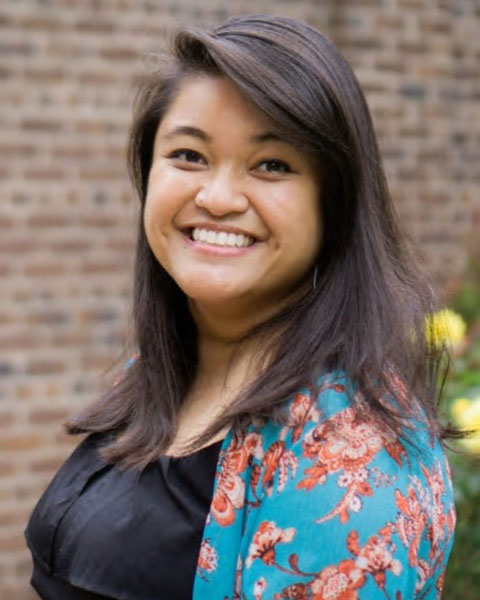Suicide and Self-Injury
Symposium 50 - Identify, and Addressing, Suicide Risk Across Adolescence and Adulthood
Level of Familiarity: Basic to moderate
Recommended Readings: Nock, M. K., Ramirez, F., & Rankin, O. (2019). Advancing our understanding of the who, when, and why of suicide risk. JAMA Psychiatry, 76(1), 11-12. https://doi.org/10.1001/jamapsychiatry.2018.3164, Fox, K. R., Huang, X., Guzmán, E. M., Funsch, K. M., Cha, C. B., Ribeiro, J. D., & Franklin, J. C. (2020). Interventions for suicide and self-injury: A meta-analysis of randomized controlled trials across nearly 50 years of research. Psychological Bulletin, 146(12), 1117-1145. https://www.doi.org/10.1037/bul0000305, Franklin, J. C., Ribeiro, J. D., Fox, K. R., Bentley, K. H., Kleiman, E. M., Huang, X., Musacchio, K. M., Jaroszewski, A. C., Chang, B. P., & Nock, M. K. (2017). Risk factors for suicidal thoughts and behaviors: A meta-analysis of 50 years of research. Psychological Bulletin, 143(2), 187-232. https://www.doi.org/10.1037/bul0000084, Kleiman, E. M., Bentley, K. H., Glenn, C. R., Liu, R. T., & Rizvi, S. L. (2022). Building on the past 50 years, not starting over: A balanced interpretation of meta-analyses, reviews, and commentaries on treatments for suicide and self-injury. General Hospital Psychiatry, 74, 18-21. https://www.doi.org/10.1016/j.genhosppsych.2021.11.002, Platt, J. M., Pamplin, J. R., Gimbrone, C., Rutherford, C., Kandula, S., Olfson, M., Gould, M. S., Martínez-Alés, G., Shaman, J., & Keyes, K. (2022). Racial disparities in spatial and temporal youth suicide clusters. Journal of the American Academy of Child & Adolescent Psychiatry, 61(9), 1131-1140. https://www.doi.org/10.1016/j.jaac.2021.12.012
-
RL
Roberto López, Jr., Ph.D. (he/him/his)
University of California, Los Angeles
Los Angeles, California, United States -
CC
Christine Cha, Ph.D. (she/her/hers)
Teachers College, Columbia University
New York, New York, United States -
IC
Ian Cero, Ph.D.
University of Rochester School of Medicine
Rochester, New York, United States -
AD
Annamarie Defayette, Ph.D. (she/her/hers)
University of Rochester School of Medicine
Rochester, New York, United States -
MD
Margaret Davis, Ph.D. (she/her/hers)
Assistant Professor
Yale University School of Medicine
New Haven, Connecticut, United States -

Jennifer Loya, B.S., M.A., Ph.D. (she/her/hers)
Postdoctoral Fellow
Yale School of Medicine
New Haven, Connecticut, United States -

Ana Rabasco, Ph.D. (she/her/hers)
Postdoctoral Fellow
Brown University
Providence, Rhode Island, United States
Chair(s)
Discussant(s)
Presenter(s)
Suicide is a leading cause of death among adolescents and adults. Significant strides have been made in the identification, and mitigation of, suicide risk. Nevertheless, meta-analytic findings suggest that additional research is needed to pinpoint who is at greatest risk and how to intervene most effectively. Our research team noted several limitations in extant work that provided avenues for novel research that furthers our ability to tailor intervention efforts. First, research with adolescents often highlights the importance of processes embedded within social networks (e.g., social contagion) in predicting suicide-related outcomes. However, little is known about how such processes impact suicide-specific treatment outcomes. Second, while sleep disturbances are an established risk factor for suicide, few studies have examined how sleep disturbances are related to suicidal ideation among adults with a history of a recent suicide attempt, a group at heightened risk for re-attempting. Third, while individuals experiencing trauma-related psychopathology (e.g., posttraumatic stress disorder) are at heightened risk for suicidal behavior, there is limited research on biological treatment targets for this high-risk group. Fourth, research with racially minoritized groups is sorely needed to understand the interpersonal and structural factors that may account for disparities in suicide risk relative to their non-racially minoritized peers. Fifth, existing research has noted the importance of adapting suicide interventions by age of participant, though few intervention studies have directly tested age as a moderator of treatment outcomes.
This symposium aims to extend our existing knowledge of suicide risk assessment and intervention by presenting novel research with adolescents and adults. First, Dr. Ian Cero will describe the use of agent-based modeling to examine how external social network processes moderate individual psychotherapy outcomes, with a focus on suicide risk. Second, Dr. Annamarie Defayette will report on the impact of sleep disturbances on suicide risk in a clinical sample of adults enrolled in an intervention study. Drs. Margaret Davis and Jennifer Loya will then describe biological and psychosocial factors that increase suicide risk among adults with trauma histories and racially minoritized groups, respectively. Fifth, Dr. Ana Rabasco will report on how age moderates outcomes in one of the largest intervention studies for suicide among adults recruited from emergency departments. Finally, our Discussant, Dr. Christine Cha, a leading expert on suicide prevention, will integrate the presentations and expand on their implications for advancing the identification, and mitigation of, suicide risk among adolescents and adults.
Learning Objectives:
- Describe multiple biopsychosocial factors that influence suicide risk among teens and adults.
- Recognize at least one moderator of treatment outcomes among teens and adults.
- Identify at least two factors that widen disparities for suicide risk among marginalized groups.
- Describe the value of using various levels of assessment (i.e., from neuronal to interpersonal to systemic).
- Name at least one clinical implication of findings (e.g., assessing for social determinants of health).
Presentations:
-
2:30 PM - 4:00 PM EST(SYM 50) Social Network Context as a Moderator of Intervention Effectiveness
Speaker: Ian Cero, Ph.D. – University of Rochester School of Medicine
-
2:30 PM - 4:00 PM EST(SYM 50) Sleep Disturbance Is Related to Ongoing Suicidal Ideation Among Adults with a Recent Suicide Attempt
Speaker: Annamarie B. Defayette, Ph.D. (she/her/hers) – University of Rochester School of Medicine
Co-author: Anthony Pisani, PhD (he/him/his) – University of Rochester Medical Center
Co-author: Wilfred Pigeon, PhD – University of Rochester Medical Center
Co-author: Jolynn Jones, MA – Brigham Young University
Co-author: Catherine Quintana, BA (she/her/hers) – University of Rochester Medical Center
Co-author: Joshua McElliott, BS (he/him/his) – University of Rochester Medical Center
-
2:30 PM - 4:00 PM EST(SYM 50) Kappa Opioid Receptor as a Novel Biomarker for Suicide Risk in Trauma-related Psychopathology: Preliminary Results from an [11C]EKAP PET Imaging Study
Speaker: Margaret T. Davis, Ph.D. (she/her/hers) – Yale University School of Medicine
Co-author: Emily R. Weiss, Ph.D. (she/her/hers) – Yale University School of Medicine
Co-author: Ashley Wagner, B.S. – Yale University School of Medicine
Co-author: Irina Esterlis, Ph.D. – Yale University School of Medicine
Co-author: David Matuskey, M.D. – Yale University School of Medicine
Co-author: Ansel Hillmer, Ph.D. – Yale University School of Medicine
-
2:30 PM - 4:00 PM EST(SYM 50) Exploring the Pattern of Associations Between Protective Factors and Ever Attempting Suicide Among Individuals from Historically Marginalized Communities
Speaker: Jennifer M. Loya, B.S., M.A., Ph.D. (she/her/hers) – Yale School of Medicine
Co-author: Maria Crouch, PhD – Yale School of Medicine
Co-author: Terra Osterberg, B.A. – James J. Peters VA Medical Center
Co-author: Margaret T. Davis, Ph.D. (she/her/hers) – Yale University School of Medicine
-
2:30 PM - 4:00 PM EST(SYM 50) Examining the Effectiveness of a Suicide Prevention Program Across Adulthood for Patients Following an Emergency Department Visit
Speaker: Ana Rabasco, Ph.D. (she/her/hers) – Brown University
Co-author: Sarah Arias, Ph.D. – Butler Hospital & Brown University
Co-author: Lauren M. Weinstock, Ph.D. – Alpert Medical School of Brown University
Co-author: Ivan Miller, PhD – Brown University
Co-author: Edwin Boudreaux, PhD – UMass Medical School
Co-author: Carlos Camargo, Jr., MD, DrPH – Massachusetts General Hospital, Harvard Medical School
Co-author: Lisa M. Horowitz, M.P.H., Ph.D. – National Institute of Mental Health, NIH
Co-author: Jeff Bridge, PhD – Center for Suicide Prevention and Research
Co-author: Tesia Shi, B.S. – National Institute of Mental Health
Co-author: Ritika Merai, B.A. – National Institute of Mental Health
Co-author: Brandon A. Gaudiano, Ph.D. – Alpert Medical School of Brown University

.png)
